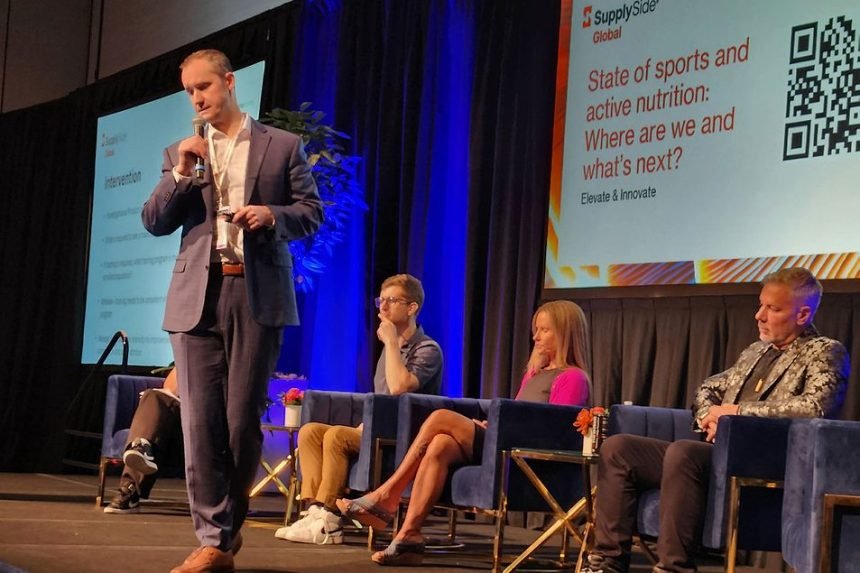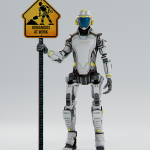LAS VEGAS — A reference to the movie “Dodgeball: A Trude Underdog Story” may help describe a SupplySide Global session on sports nutrition products, which was held Oct. 28 in Las Vegas. Think of athletes and body builders as members of Globo Gym and consumers who exercise on a less-regular basis as “average Joes.”
The Joes increasingly are buying more sports nutrition products, and technology like artificial intelligence (AI) is helping manufacturers to design products for them and researchers to study them. Call the trend the “sportification” of non-athletes over the past few years, said Scott Dicker, senior director of market insights for SPINS.
“It went from hard-core athletes to weekend warriors to yoga moms,” he said, adding that “creatine is out of the gym now and into office buildings.”
Marc Moulin, PhD, director of clinical services for KGK Science Inc., used the term average Joes throughout his presentation. Doing studies on them has some advantages over doing studies on athletes and body builders, said Moulin, whose company performs clinical research trials and provides regulatory support.
Historically, sports nutrition studies were conducted in university labs with elite athletes, he said, but athletes nowadays may decline participating in a study on an ingredient or product because they do not want to stop taking their supplements, or “wash them out,” he said.
Sports nutrition research has expanded to non-athletes and general populations. Non-athletes have more room for improvement than elite athletes, meaning a study on them may better show how an ingredient or product affects their performance, Moulin said.
Consider the intensity of workouts when studying non-athletes. They may develop stiff muscles and drop out of the study, he said. Some may not exercise regularly. They may not be able to perform exercises such as bicycling for an hour.
“It’s really a balancing game with the average Joes,” he said.
Athletes and bodybuilders still play a significant role in sports nutrition, said Susan Hewlings, PhD, senior vice president of research affairs for Radicle Science, which performs clinical trials. Their purchasing decisions may lead to trends in ingredients or products. Some consumers may aspire to be like the athletes and bodybuilders and look to them for advice.
Hewlings spoke about how technology has improved clinical trials, including those on regular consumers.
“We can find out what the consumers are doing,” she said.
Machine learning detects patterns and makes predictions on the data, Hewlings said. Home test kits and wearable devices measure that data.
Dicker said nearly 75% of Gen Z and millennials use fitness-tracking wearables, with about 20% adopting them in the past year. He added that 18% of Gen Z and 13% of millennials use AI chatbot tools to learn about new products.
Hewlings said AI may reduce bias in clinical studies and help researchers stay organized. AI helps use data from machine learning and analyze findings from wearable devices. AI may help recruit study participants.
She said clinical trials are needed to substantiate claims, which the average Joes want.
“They want to trust,” Hewlings said. “They are getting bombarded with messages everywhere.”











